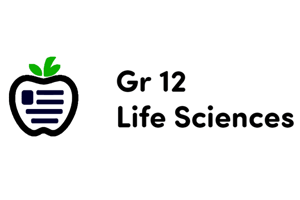Podcast
Questions and Answers
What does Lamarck's theory suggest about the inheritance of traits?
What does Lamarck's theory suggest about the inheritance of traits?
- Acquired traits can be passed down to offspring. (correct)
- Only inherited traits from ancestors are passed on.
- Environmental factors do not influence trait inheritance.
- Traits are determined solely by genetic makeup.
Which of the following is NOT a factor that organisms adapt to according to Lamarck's theory?
Which of the following is NOT a factor that organisms adapt to according to Lamarck's theory?
- Temperature
- Light
- Food
- Genetic mutations (correct)
What principle is central to Darwin's theory of natural selection?
What principle is central to Darwin's theory of natural selection?
- Organisms with less variation are more likely to survive.
- A species can only survive if it reproduces exactly the same.
- All offspring have equal chances of survival regardless of traits.
- Individuals with advantageous traits are more likely to survive and reproduce. (correct)
The concept of 'struggle for existence' in Darwinism primarily refers to what?
The concept of 'struggle for existence' in Darwinism primarily refers to what?
Which statement best describes 'variation under nature' in Darwinism?
Which statement best describes 'variation under nature' in Darwinism?
What helps explain speciation in Lamarck's theory?
What helps explain speciation in Lamarck's theory?
Which of the following best illustrates the concept of 'geometric increase' in terms of species reproduction?
Which of the following best illustrates the concept of 'geometric increase' in terms of species reproduction?
What role does the use and disuse of organs play in Lamarckism?
What role does the use and disuse of organs play in Lamarckism?
Flashcards
Lamarckism
Lamarckism
Theory by Jean-Baptiste Lamarck claiming organisms pass on acquired traits.
Use and disuse of organs
Use and disuse of organs
Lamarck's idea that organs grow or shrink based on usage.
Inheritance of acquired characters
Inheritance of acquired characters
Proposal that traits developed during an organism's life are inherited.
Speciation
Speciation
Signup and view all the flashcards
Darwinism
Darwinism
Signup and view all the flashcards
Natural selection
Natural selection
Signup and view all the flashcards
Geometric increase
Geometric increase
Signup and view all the flashcards
Struggle for existence
Struggle for existence
Signup and view all the flashcards
Study Notes
Lamarck's Theory of Inheritance of Acquired Characteristics
- Proposed in 1809
- Focused on the fossil record
- Postulated "inheritance of acquired characteristics"
- New needs: Environmental changes (light, temperature, food) drive organisms to exert themselves, creating new needs and behaviors.
- Use and disuse of organs: Regular use of certain organs strengthens them while unused ones weaken.
- Inheritance: Favorable traits acquired during an organism's life are passed to offspring. This helps them adapt to changed conditions.
- Speciation: Gradual accumulation of acquired traits over generations leads to new species.
Activity 4.5 Debating the Origin of Life
- Students divided into groups based on creationists, spontaneous generationists, eternalists, cosmozoans, and abiogenesists.
- Each group prepares a case for their theory.
- Groups debate their theory, presenting their reasoning for 5 minutes.
- Opponents ask questions for 5 minutes.
- Other class members vote on who presented their case best (not on personal views).
Lamarck's Ideas of Use and Disuse
- Use and disuse: Structures used frequently develop, while unused structures diminish.
- Giraffes example: Giraffes stretched their necks to reach higher leaves, which caused their necks to grow longer. These longer necks were passed on to their offspring.
Inheritance of Acquired Traits
- Lamarck believed changes acquired during an organism's life could be passed down.
- This is now disproven by genetics research.
- Importance: The theory was a significant attempt to explain biological evolution. Explained the existence of vestigial organs.
Activity 4.6
- Students to research evidence supporting and criticizing Lamarck's theory.
- Group presentations
Darwinism (Theory of Natural Selection)
- Proposed by Charles Darwin (1809-1882).
- Darwin's voyage on the HMS Beagle. Observation of species on the Galapagos Islands was crucial to developing this theory.
- Influenced by essay "On the Tendency of varieties on Depart Indefinitely from the original type" by Alfred Russell Wallace.
- Geometric increase: Populations produce more offspring than can survive. Competition exists.
- Struggle for survival: Organisms compete for limited resources.
- Variation: Individuals in a population have variations that might make them better or worse adapted to the environment.
- Natural selection: Those with beneficial traits are more likely to survive and reproduce, passing on these traits.
- Gradual Origin of Species: Adaptations over long time frames lead to the creation of new species.
- Neo-Darwinism: Modern understanding of evolutionary change, integrating genetics into the theory of natural selection.
Darwin's Theory of Finches on the Galapagos Islands
- Darwin studied finches on different Galapagos Islands.
- Found similarities and differences among them.
- Concluded that ancestral finches adapted to different islands and evolved into different species based on food sources/environment (e.g., insectivorous, seed-eating).
Studying That Suits You
Use AI to generate personalized quizzes and flashcards to suit your learning preferences.





